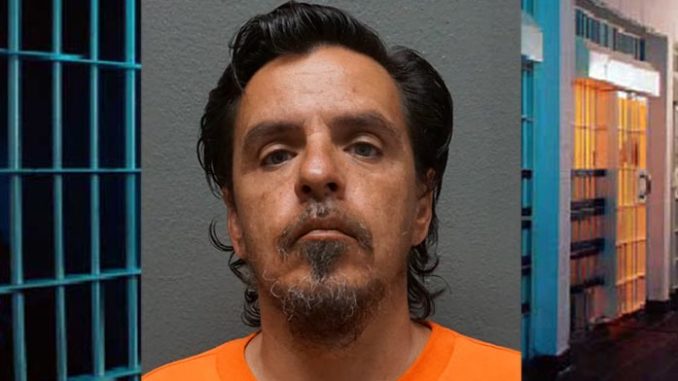
A Bisbee man convicted last year of transporting 57 pounds of marijuana in 2016 is hoping the Arizona Court of Appeals will overturn a jury’s verdict and his three-year sentence following a hearing next month.
James Edward Earley II was convicted at trial and was sentenced in March 2019 to three years imprisonment in the custody of the Arizona Department of Corrections. Days later he filed a notice of appeal.
Earley, 44, contends his constitutional rights were violated in two ways, once prior to his arrest and then again at trial. His court-appointed attorney with the Cochise County Legal Advocate Unit will argue on Earley’s behalf to a three-judge appellate panel on April 15 in Tucson.
The appeal is opposed by the Arizona Attorney General’s Office on behalf of the Cochise County Attorney’s Office which prosecuted the case.
Court records show one of Earley’s two challenges concerns comments the prosecutor made in front of the jury related to the fact Earley didn’t tell investigators at the time of his December 2016 arrest about a purported alibi.
Earley was arrested one month after a USBP surveillance camera observed a pickup truck driving slowing along the Arizona / Mexico border near Bisbee. A man was observed getting out of the truck and putting something in the backseat, then driving away.
USBP Agent Daniel Schutz was assigned to locate the truck, which he eventually found parked in a driveway of a Bisbee home, only a few feet from the door to the house. Schutz saw a man -later identified as Earley- standing next to the passenger side of the truck, which was registered to Earley’s father.
The man then got into another truck and drove away. Trooper Marcelino Encinas of the Arizona Department of Public Safety arrived to assist Schutz, but neither saw who had driven the pickup to the home.
Three bundles of marijuana with a total weight of 57 pounds were found inside the truck. Earley was later indicted in 2018 for the possession and transportation of marijuana for sale.
During his trial, Earley testified that a friend borrowed the truck while Earley was visiting another friend. He also testified that when the first friend returned the truck he told Earley he had “picked up a load and the cops are on me.” The friend died before the trial.
According to court documents, Earley told investigators at the time of his arrest where they could find his cell phone but then invoked his right to remain silent, per the Miranda Warning. He contends his right to a fair trial was violated by comments the prosecutor made during the trial which called attention to the fact he didn’t offer up an alibi or exculpatory evidence when arrested.
The other part of Earley’s appeal concerns whether the marijuana bundles were seized as the result of an improper search under the Arizona and U.S. Constitutions.
Schutz and Encinas testified they walked through the unfenced driveway toward the house, intending to conduct a “knock and talk” maneuver in hopes someone would consent to a search of the property. The route they walked brought them within feet of the parked truck even though there was another path available.
Both officers noted they smelled marijuana when they approached the truck. They also were able to look into the truck and see what appeared to be bundles covered by a blanket. Those observations were included in an application for a search warrant which led to the seizure of the marijuana.
But Earley believes Schutz and Encinas never intended to knock on the door. He contends they intentionally walked onto the property in such a way that they could look inside the truck without first obtaining a search warrant.
His appeal cites an Arizona Supreme Court decision from 1984 prohibiting officers from making a warrantless search of a residence “in absence of exigent circumstances or other necessity.” He also cites the Fourth Amendment of the U.S. Constitution which grants people the right “to be secure in their persons, houses, papers, and effects, against unreasonable searches and seizures.”
The U.S. Supreme Court has ruled the Fourth Amendment also applies to the curtilage of a home, such as garages, driveways, decks, and workshops in close proximity to a residence which people would generally consider to be a non-public space.
Prior to Earley’s trial, Presiding Judge James Conlogue of the Cochise County Superior Court ruled the truck was parked within the curtilage of the house owned by Earley’s grandmother and that he could assert a curtilage protection. However, the judge ruled the officers were acting “within the general license” of their duties in setting out to conduct a knock and talk, and therefore they didn’t need a search warrant before entering the property.
While Earley contends the trial judge erred in allowing the evidence from the warrantless entry to stand, the attorney general’s office is disputing Conlogue’s ruling that Earley had standing to assert a curtilage protection.
The State’s answering brief argues Earley couldn’t expect nor demand privacy on the property because he didn’t live in the house or even have keys to it. Earley’s other claims “are meritless on appeal,” according to the brief.
The April 15 oral argument hearing is open to the public starting at 2p.m. Young children are not allowed in the courtroom.
